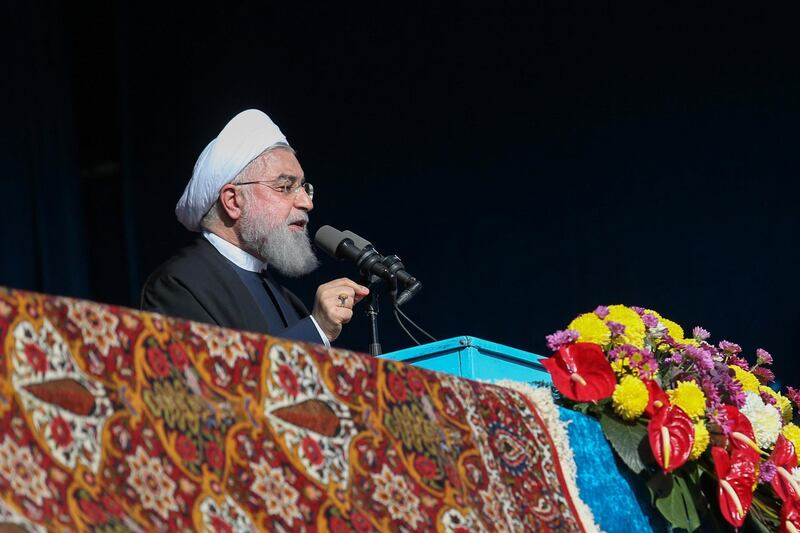In his latest warning over US sanctions, Iranian President Hassan Rouhani warned the United States that if Tehran isn't able to export oil then they will act to stop any country in the Gulf from doing the same.
US officials have said they intend to reduce Iran’s oil exports to zero through robust sanctions in an effort to curb the Islamic Republic’s missile programme and regional influence.
"America should know... it is not capable of preventing the export of Iran's oil," Mr Rouhani said at a televised rally in Semnan Province on Tuesday.
"If it ever tries to do so... no oil will be exported from the [Arabian] Gulf," he added.
______________
Read more:
Egypt's Sisi says army will defend Gulf, after Iranian cleric threatens Saudi Arabia
Iran threatens missile strikes on Al Dhafra and other US bases
The oil legacy of George H W Bush
______________
Iran has issued repeated threats to blockade Gulf states and shut the Strait of Hormuz, a major conduit for oil and other exports from the GCC area, in response to international pressure.
Most recently, Mr Rouhani threatened to close the strait in July, saying that the US "should not play with the lion's tail" in response to US President Donald Trump's announcement that his administration would withdraw from the nuclear deal. The US has warships deployed in the area and has vowed to take military action to ensure the free passage of shipping if necessary.
Washington has reimposed sanctions, including an oil embargo, since withdrawing from a landmark 2015 nuclear deal between Tehran and major powers in May.
It has granted temporary waivers to eight countries, including Iraq, who are heavily dependent on oil imports from Tehran, on condition that they seek alternative sources. Saudi Arabia has said it will increase production to compensate for the reduction of supply from Iran.
The president downplayed the economic impact of sanctions, accusing the media of exaggerating the country's problems.
"No hyperinflation, no massive unemployment will threaten us. People should stop saying such things in the papers," he told the crowd.
The latest inflation report from Iran's Central Bank says food prices rose 56 per cent year-on-year in October.
Mr Rouhani acknowledged there were "some problems", but said these would be addressed in the new budget plan to be presented on December 16.
He said the government would maintain subsidies on essential goods and increase public-sector wages and pensions by 20 per cent.






